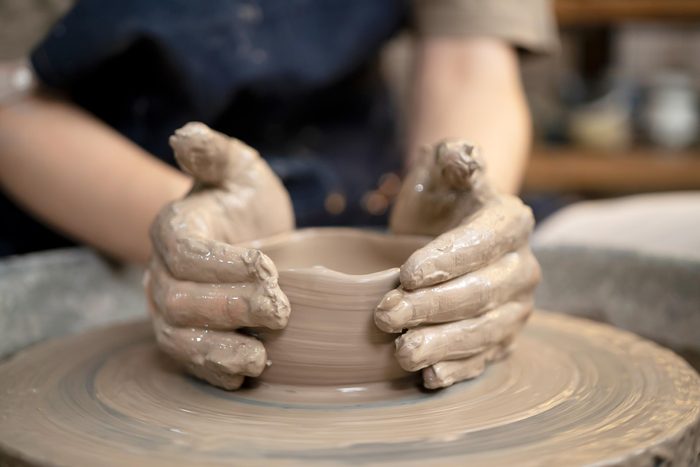New Study: This Activity Could Lower Your Future Dementia Risk 11%
Updated: Aug. 07, 2023

July 2023 research in Australia reveals the power of little brain challenges to lower your dementia risk later in life.
If you’ve been looking for an excuse to snuggle up with a warm mug and the weekend word puzzle, do it for your health…and make it a regular self-care date. A new study from Monash University in Melbourne, Australia, recommends engaging in mental workouts for your brain, just like physical exercise challenges your body to stay active and strong.
Published in the peer-reviewed journal JAMA Network Open in July 2023, this new research suggests that activities which engage the mind can have significant health benefits. The study found that older adults who regularly participate in literacy activities—like attending educational classes, using a computer, or keeping a journal—and engage in mental stimulation activities, such as playing games, cards, chess, or solving puzzles and crosswords, could reduce their risk of dementia by 11% and 9% respectively, over a decade.
The research also prompts an interesting question: Do all cognitive activities have the same impact on brain health, or are certain activities more beneficial? The lead author of the study gave us some answers
The power of active engagement
Drawn from the ASPREE dataset (a two-phase research project conducted in Australia and the US), this study analyzed over 10,000 Australians aged 70 years and above. Interestingly, even though another recent study concluded that healthy relationships were the single-biggest contributor to longevity, the Australian research found that frequent social outings or the size of a person’s social network didn’t significantly reduce dementia risk. What mattered most was the consistent engagement in mentally stimulating activities.
Joanne Ryan, PhD, associate professor at the School of Public Health and Preventive Medicine at Monash University and the study’s senior author, notes in a press release that the findings suggest “active manipulation of previously stored knowledge may play a greater role in dementia risk reduction than more passive recreational activities.”
In essence, activities that challenge your mind may be a major key to maintaining mental health in older age.
Over 40? Here Are 9 Clever Memory Exercises to Start Doing Today
Creating, crafting, and cognitive health
Dr. Ryan’s research suggested that artistic pursuits also hold merit in the fight against dementia: Crafting and other creative endeavors were associated with a 7% decrease in dementia risk. Whether it’s woodworking, painting, or knitting, these creative activities stimulate the brain in unique ways, fostering problem-solving skills, hand-eye coordination, and spatial awareness.
Crafting often induces a state of flow—complete immersion and engagement in an activity—which has been associated with lower stress levels and better brain health, backed by research from major institutions like the Mayo Clinic. This could further enhance its protective effects against cognitive decline.
While several factors can lead to the development of dementia, incorporating mentally stimulating activities into your routine can significantly contribute to maintaining good cognitive health. As Dr. Ryan concludes: “If that was your goal and you had to choose, our research certainly suggests these are the activities most likely to support prolonged good cognitive health.”



















